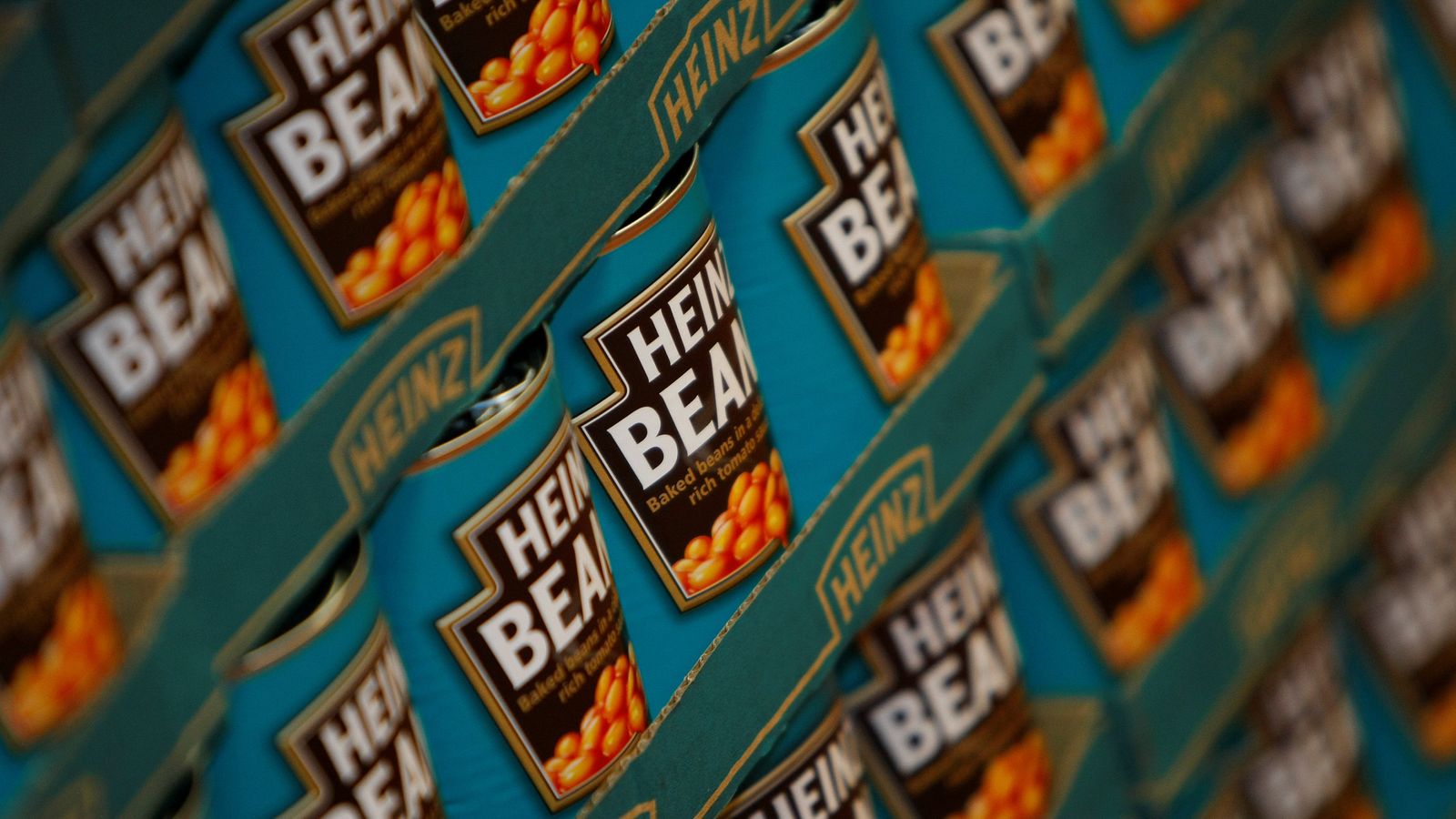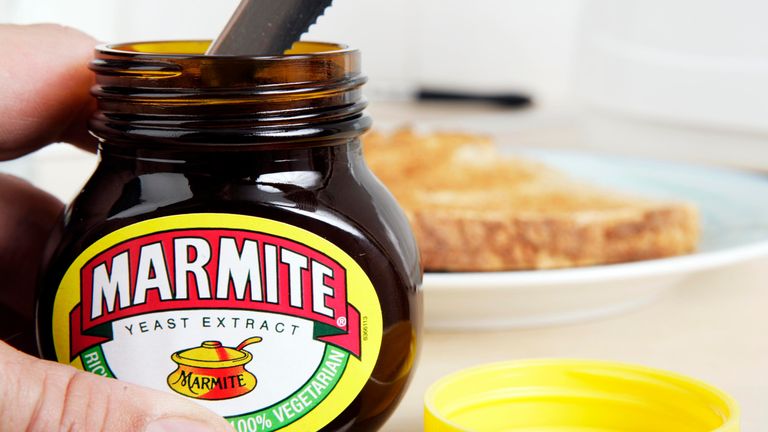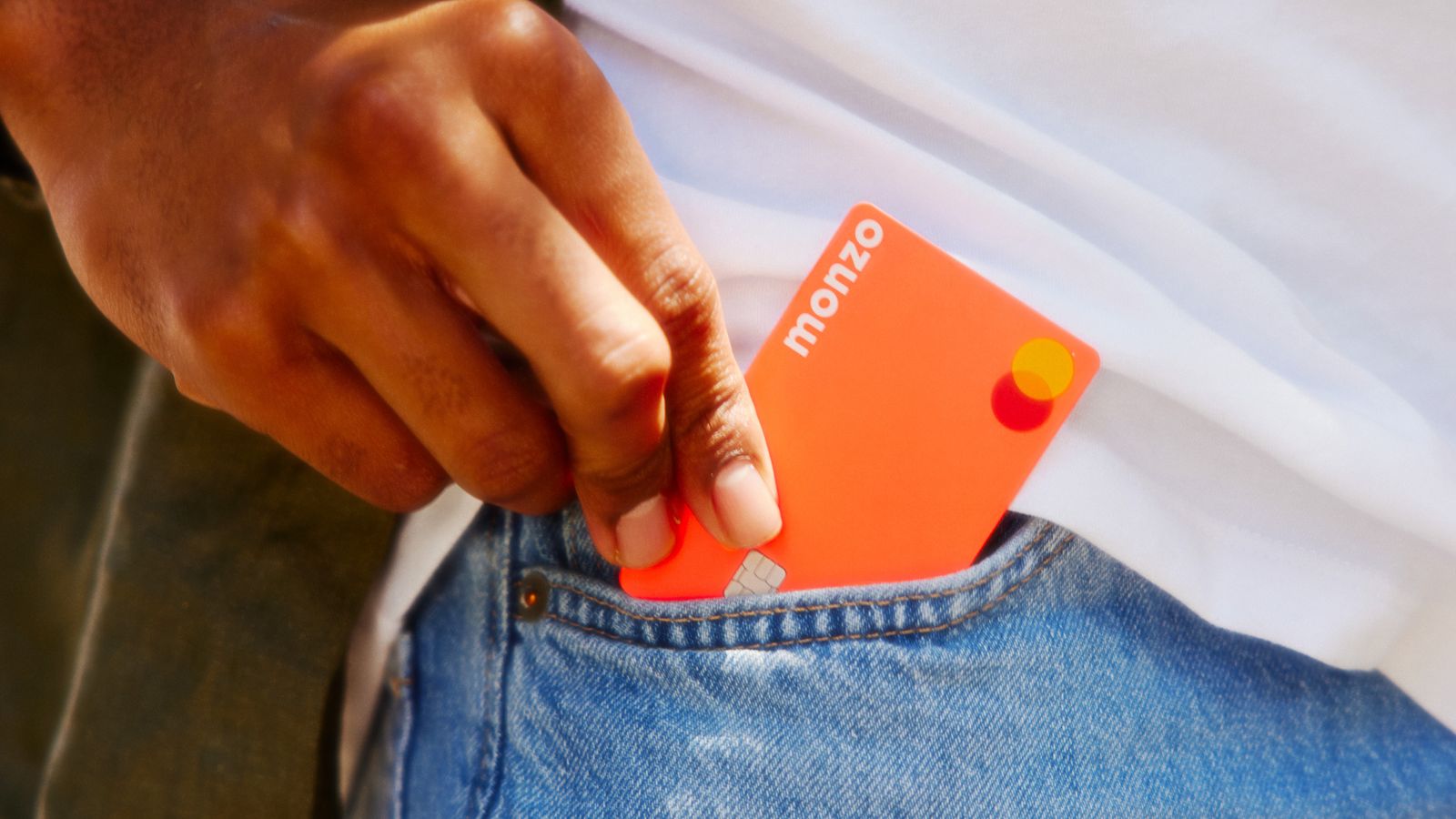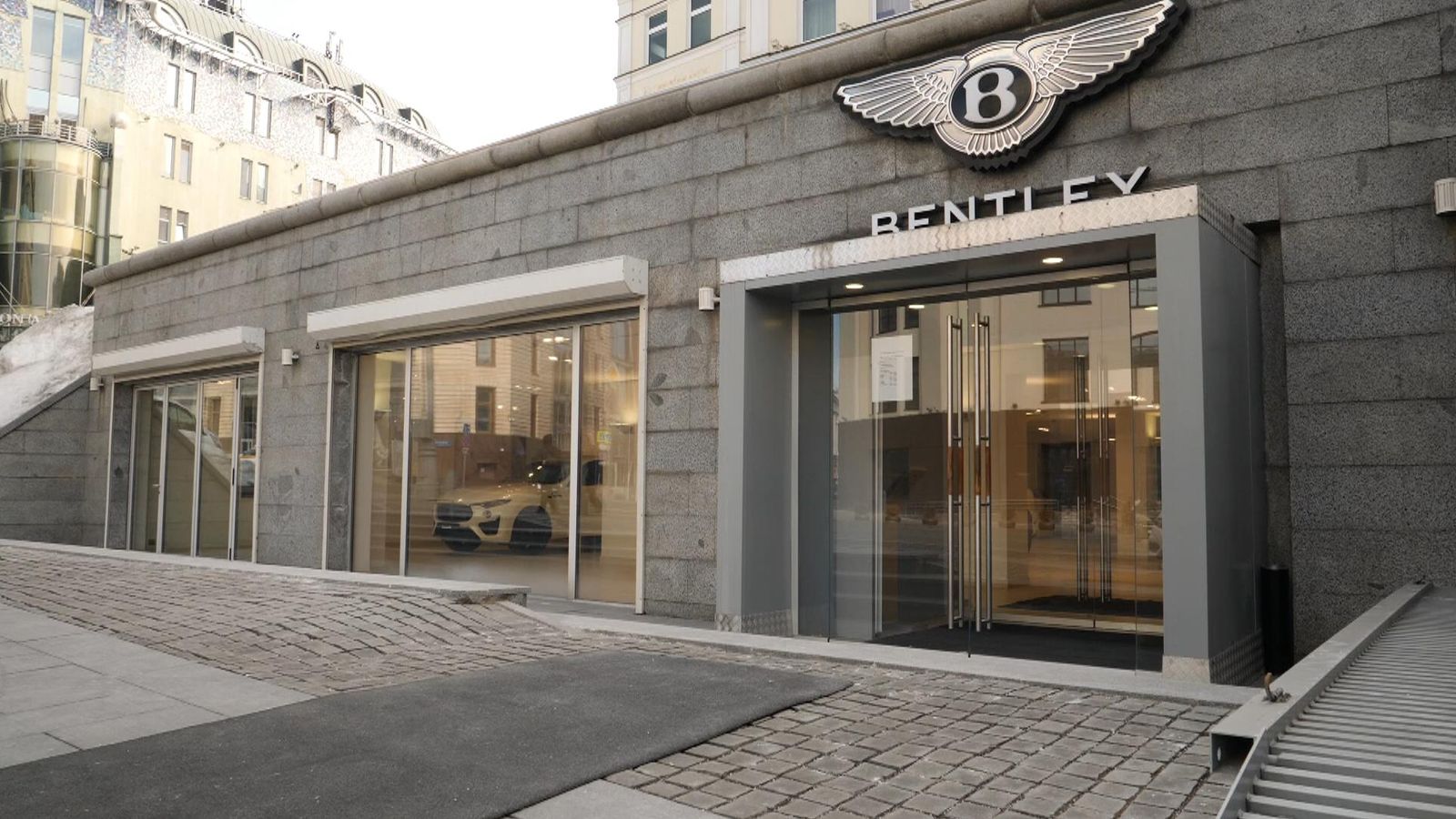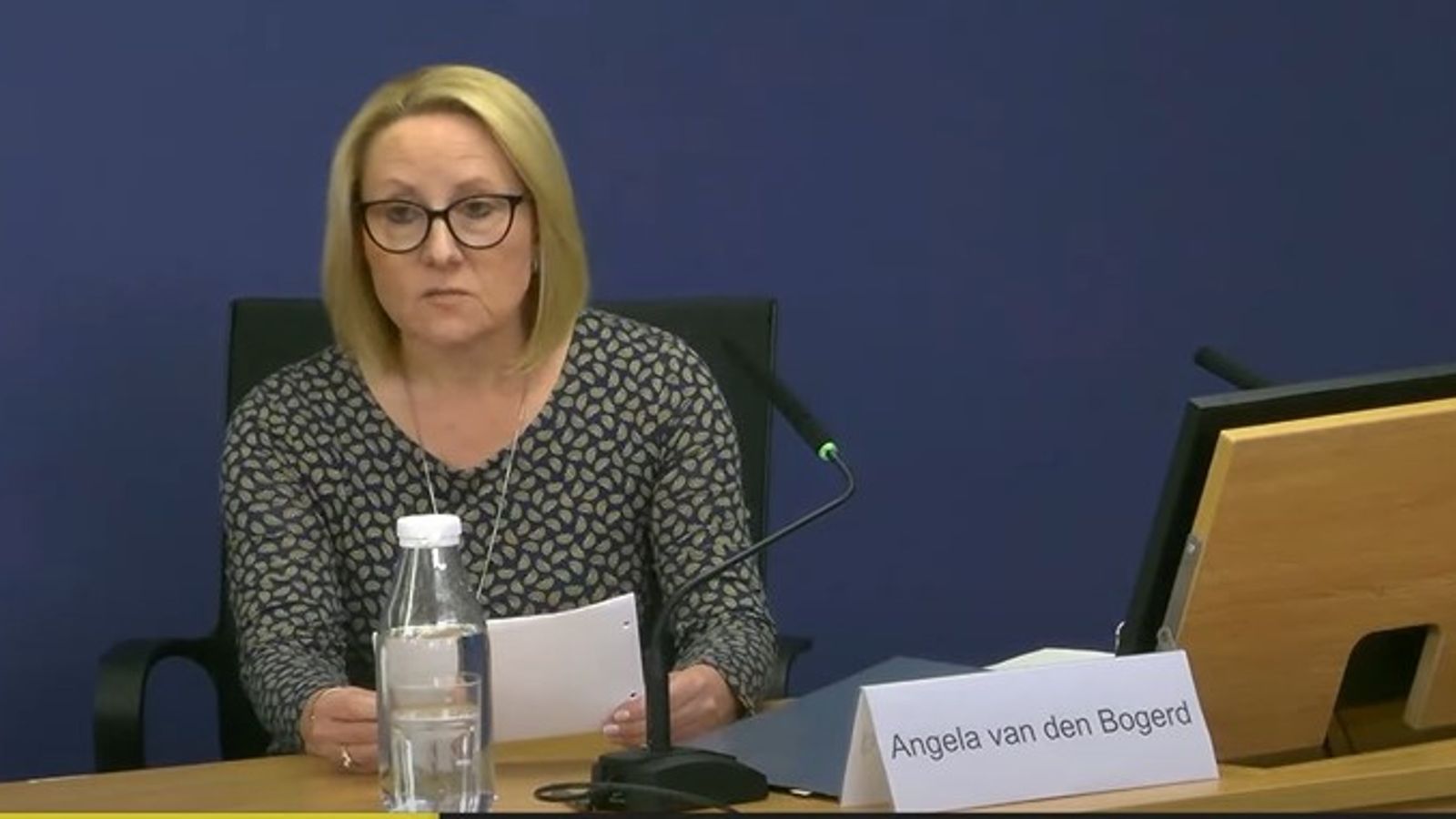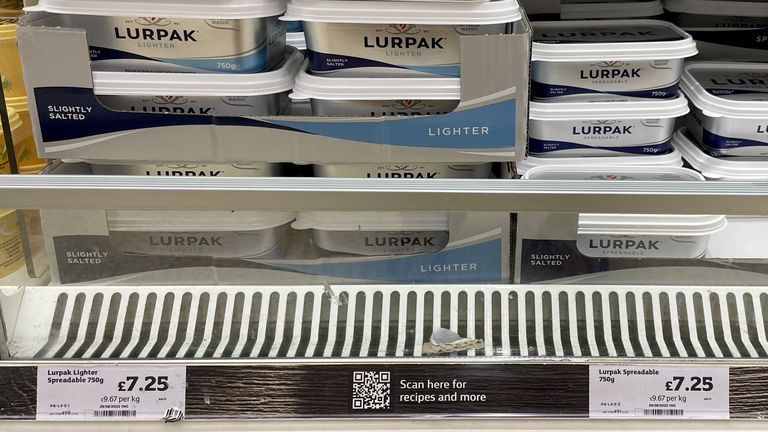
Major brands have denied so-called “shrinkflation”, despite selling smaller quantities of a product for similar prices, saying there was no need for greater transparency as reductions are put online and shoppers are “savvy”.
A boss at Kraft Heinz told the MPs at the Environment, Food and Rural Affairs Committee that reducing the percentage of beans in a tin, without bringing down the price, was not shrinkflation.
Instead, the reduction from 51% to 50% beans in a 415g tin was “to make it taste better” and “to improve the quality of our product”, said Dominic Hawkins, the UK head of supply chain at the company behind Heinz beans and HP sauce.
Money blog: Big drop in inflation predicted ahead of announcement
When asked about the reduction of Hellman’s mayonnaise packaging from 800g to 600g, a boss at the products-maker Unilever did not directly deny shrinkflation, but said the cost of a major ingredient had significantly increased.
“We would never go to using just the pack size to achieve a price if it wasn’t justified through the cost”, said Marc Woodward, the UK and Ireland head at Unilever.
The maker of Lurpak butter said the removal of 500g packs and introduction of 400g boxes came with a price reduction and was to offer a smaller and cheaper product, according to Bas Padberg, the UK managing director of Arla Foods.
“It is really trying to serve consumers that are tightening their belts… to allow them to continue to get access to the product, and it was effective in that sense.”
Read more from Sky News:
Cadbury cuts the size of its Dairy Milk sharing bar
‘Shrinkflation’ and ‘skimpflation’ bite shoppers
‘Shoppers are super savvy’
When asked if there was a greater need for transparency on pack size reductions, Mr Woodward said any changes made were already “completely transparent”.
“We’ll put it on our website so that we make sure we’re clear about the grammage, and it’s on all our tickets.”
If this transparency did not exist, consumers would not buy the brands, he added.
“I think if we’re not explicit and transparent in what we’re doing, then consumers make a choice and they will choose not to buy your brands every time. If they don’t feel they’re getting value because you’ve not communicated correctly, then you miss an opportunity.”
“Shoppers are super savvy, and they know exactly what’s going on,” Mr Woodward said.
Another witness giving evidence to the committee said it was for the supermarkets to say whether to have the pence per 100g cost in bigger writing.
Profit and cost of living pressures
When pressed about rising profits among the big brands, amid a cost of living crisis, Mr Hawkins said his company had “always passed on less than the inflation we’ve seen”.
Many households have been under intense financial pressures as prices rose, and remained high after the invasion of Ukraine.
While overall inflation fell back to 4% in December, food inflation was double that, at 8%, having been at a 45-year high of 19.2% in March last year.
High energy costs and wage bills made food production more expensive – a cost that is in large part borne by the end consumer.
Use of foodbanks is at record levels as people struggle to afford food as well as energy bills, which remain above historic averages.

